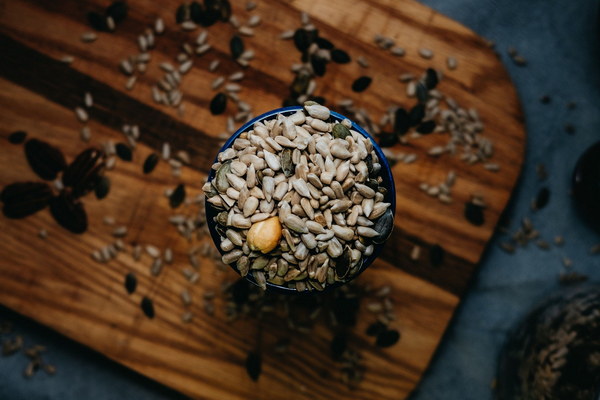Five Effective Strategies to Help You Cultivate a Healthy Stomach
Introduction:
The stomach is one of the most vital organs in our body, responsible for digesting food and absorbing nutrients. However, due to modern lifestyles and poor dietary habits, many people suffer from stomach issues. In this article, we will explore five effective strategies to help you cultivate a healthy stomach and improve your overall well-being.
1. Maintain a Balanced Diet:
A balanced diet is essential for maintaining a healthy stomach. Include a variety of fruits, vegetables, whole grains, lean proteins, and healthy fats in your meals. Avoid excessive consumption of spicy, greasy, and processed foods, as these can irritate your stomach lining and lead to discomfort.
- Fruits and vegetables: These are rich in fiber, vitamins, and minerals that aid in digestion and improve gut health.
- Whole grains: They provide complex carbohydrates that keep your stomach feeling full and provide energy.
- Lean proteins: They help repair and build tissues, and can be found in chicken, turkey, fish, and legumes.
- Healthy fats: Monounsaturated and polyunsaturated fats, found in avocados, nuts, and olive oil, are beneficial for your stomach and overall health.
2. Eat Slowly and Mindfully:

Eating too fast can lead to overeating and poor digestion. Take the time to savor your food, chew thoroughly, and enjoy the flavors. This helps your stomach to break down food more efficiently and reduces the likelihood of indigestion.
3. Stay Hydrated:
Drinking plenty of water is crucial for maintaining a healthy stomach. Water helps to keep the digestive system moving smoothly and prevents constipation. Aim to drink at least 8 glasses of water a day, and increase your intake if you are active or live in a hot climate.
4. Exercise Regularly:
Regular physical activity promotes good digestion and helps to reduce stress, which can exacerbate stomach issues. Engage in activities such as walking, jogging, cycling, or swimming, and aim for at least 30 minutes of moderate exercise most days of the week.
5. Manage Stress:
Stress can have a negative impact on your stomach health, leading to conditions such as acid reflux, bloating, and irritable bowel syndrome (IBS). Find ways to manage stress, such as practicing mindfulness, meditation, deep breathing exercises, or engaging in hobbies that you enjoy.
Conclusion:
By following these five strategies, you can help cultivate a healthy stomach and improve your overall well-being. Remember that it is essential to make lasting changes to your lifestyle and diet to maintain a healthy stomach. If you continue to experience stomach issues, consult with a healthcare professional for personalized advice and treatment.









